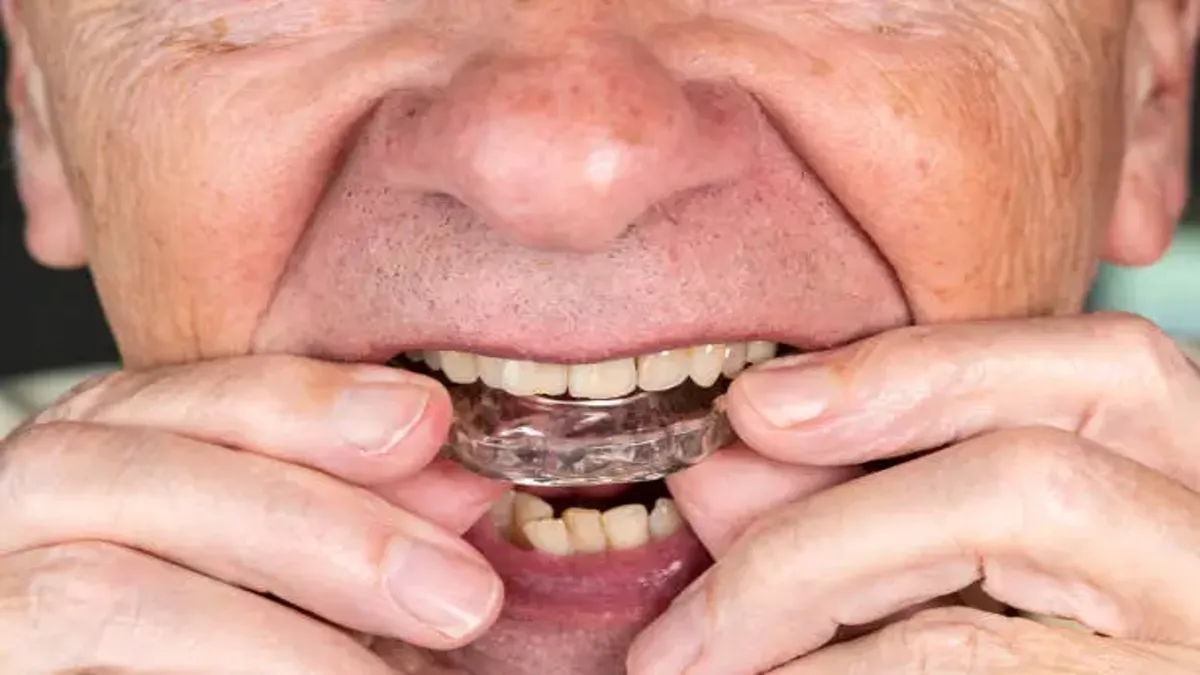Bruxism, more commonly known as teeth grinding, is a condition that affects millions of people around the world. It often happens unconsciously, especially at night, and can cause significant dental and health issues if left untreated. Unfortunately, there are many myths and misconceptions about bruxism that can prevent people from seeking the right help. Let’s dispel some of the most common myths and shed light on the truth about teeth grinding.
Myth 1: Teeth Grinding Is Harmless
One of the biggest misconceptions about bruxism is that it’s not a serious condition. Many people assume that grinding their teeth occasionally is normal and doesn’t cause harm. While occasional grinding may not be alarming, chronic bruxism can lead to enamel erosion, cracked or chipped teeth, gum recession, jaw pain, and even temporomandibular joint (TMJ) disorders. Over time, untreated bruxism can significantly compromise oral health and overall well-being.
Reality: Bruxism is not harmless. If you wake up with jaw pain, headaches, or notice tooth wear, it’s important to consult with a dentist. Early intervention can prevent long-term damage.
Myth 2: Stress Is the Only Cause of Bruxism
While stress is indeed a common factor behind teeth grinding, it’s not the only cause. Other contributors can include misaligned teeth, sleep disorders like sleep apnea, certain medications, lifestyle habits (such as excessive caffeine or alcohol), and even genetic predisposition.
Reality: Bruxism is a multifactorial condition. Stress management may help reduce grinding, but dental evaluation is necessary to identify other underlying causes and find the best treatment plan.
Myth 3: Children Who Grind Their Teeth Will Outgrow It
Parents often believe that teeth grinding in children is just a phase that will naturally disappear as they grow older. While some children do stop grinding as their permanent teeth develop, not all do. Ongoing bruxism in children can cause premature wear, bite issues, and discomfort.
Reality: Pediatric bruxism should not be ignored. A dentist can monitor the situation and, if necessary, provide custom night guards or other interventions to protect the child’s teeth.
Myth 4: Night Guards Cure Bruxism
Another common myth is that wearing a night guard will cure bruxism. While night guards are extremely effective at protecting the teeth from further damage, they don’t stop the grinding itself. Instead, they act as a barrier between the upper and lower teeth, reducing wear and alleviating pain.
Reality: Night guards are a management tool, not a cure. Treating the root cause—whether stress, misalignment, or sleep apnea — is essential for long-term relief.
Myth 5: Bruxism Doesn’t Affect Cosmetic Dentistry
Some people believe that cosmetic dental treatments, such as veneers, crowns, or bonding, are immune to the effects of bruxism. However, this is far from the truth.
Reality: Bruxism can damage cosmetic restorations just as much as natural teeth. For example, many patients ask, does bruxism affect veneers? The answer is yes — grinding can chip or fracture veneers if left unchecked. This doesn’t mean veneers are off-limits for people with bruxism, but additional precautions such as wearing a custom night guard and addressing the grinding habit are crucial for long-term success.
Myth 6: You Always Know When You’re Grinding Your Teeth
Because bruxism often occurs at night during sleep, many people assume they would know if they were grinding. The reality is that most people are unaware until a partner hears the grinding or a dentist notices signs of enamel wear. Daytime clenching is also subtle and often overlooked.
Reality: Bruxism is frequently unnoticed by the person experiencing it. Regular dental checkups are essential to detect the early signs and prevent complications.
Myth 7: Teeth Grinding Only Affects the Mouth
While bruxism is primarily a dental issue, its effects go beyond the teeth and jaw. Chronic grinding can cause tension headaches, earaches, and even disrupted sleep patterns. In severe cases, the strain on the temporomandibular joint can lead to TMJ dysfunction, which impacts overall quality of life.
Reality: Bruxism is a whole-body issue. Addressing it can improve not just dental health but also sleep quality and overall well-being.
Final Thoughts
Bruxism and teeth grinding are more than just minor habits — they can significantly affect your oral and general health. By debunking these myths, it becomes clear that teeth grinding deserves attention and proper management. Whether it’s protecting your teeth with a night guard, addressing stress, or asking your dentist about cosmetic dentistry options, the right care plan can make all the difference.
If you’ve ever wondered about the impact of bruxism — on natural teeth, veneers, or overall health — it’s best to seek advice from a qualified dental professional. Dispelling myths and understanding the truth is the first step toward healthier teeth and a more confident smile.

